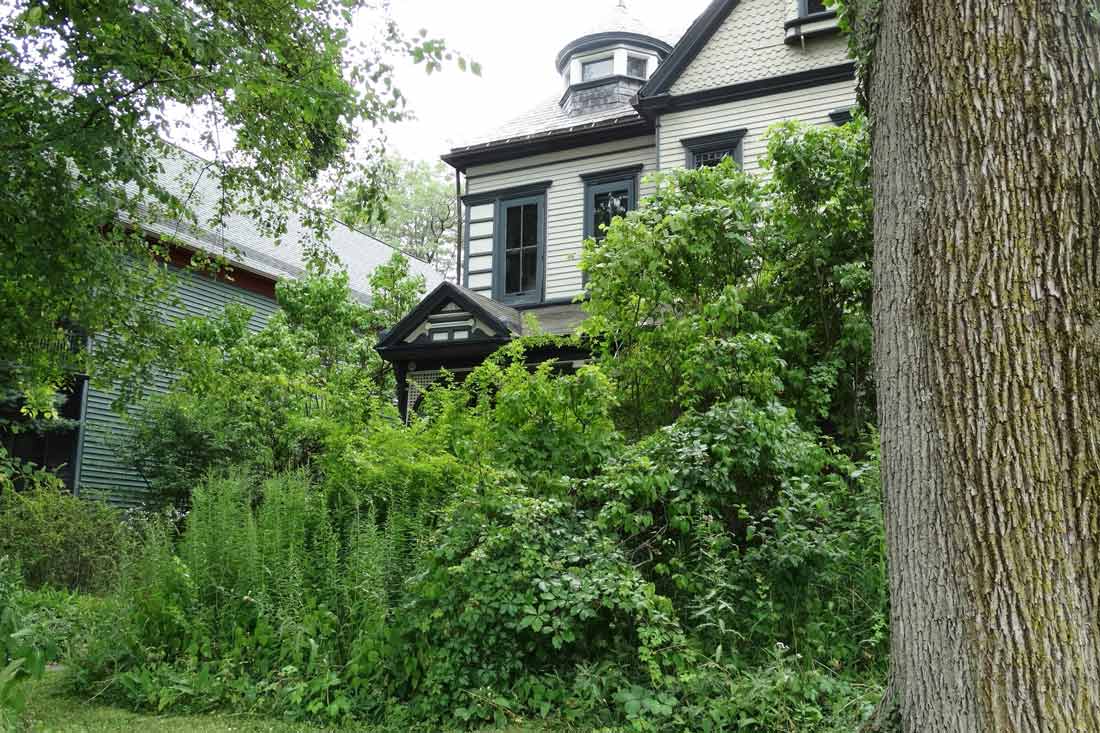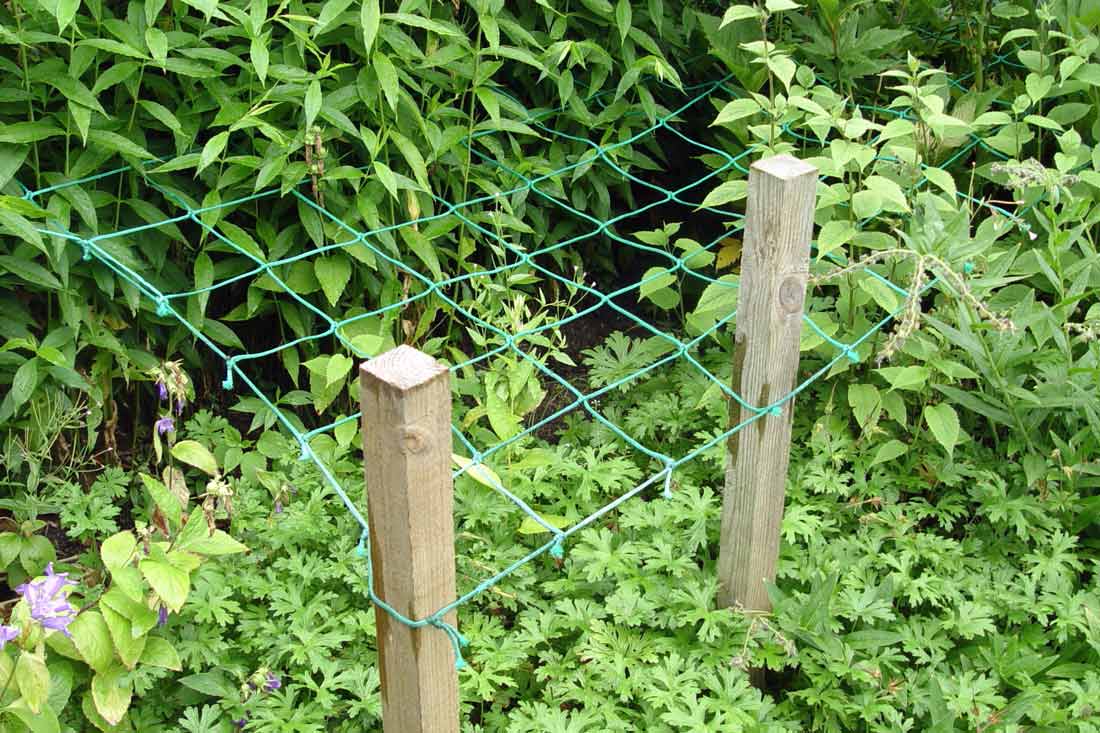Things to Do in the Garden While You’re Social-Distancing
Looking for things to do around the house while social distancing? Spend some time in your garden!

Plants can quickly grow beyond where you want if you're not there to monitor them. George Weigel
Don’t toss in the towel if you get back from summer vacation to find a jungle where your yard used to be.
It doesn’t take long for plants – and especially weeds – to grow beyond where you’d like them. The good news, though, is that things usually look worse than they really are if you’ve only been gone two or three weeks. A few “de-jungling” moves should make a quick difference:

Netting strung horizontally over the top of garden beds is the best way to prevent floppy plants. George Weigel